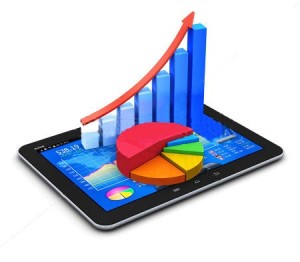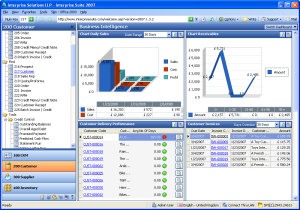Skip to content
Dashboards
Dashboards are no longer for big business. Small business can benefit with huge rewards. It’s 5:30 am having your 
coffee and you wonder how business went yesterday. Pull out your tablet and check yesterday’s sales, what sold, where, to who, who was in at work, who was not, are deliveries on schedule, who got shipments yesterday, you get it, just about anything that your staff entered as they closed the day.
Good Dashboards are indispensable and bad ones will cost you the same amount of money. Data Cube have been doing this for 15 years that like 150 human years in IT. We starting doing BI dashboards when IT gurus would ask us “what the hell, is that”.
Let us navigate you through this onslaught of new dashboards. Everyone and his dog has a new dashboard software for sale but few can really do the job. Our experience can navigate you through this minefield of BS and false promises.
Understanding dashboards and their business value
Depending on your business challenges and the overall goals of your dashboard implementation, the type of solution you choose will differ. While there are a variety of business cases that discuss why your organization should choose one solution over another, many dashboards have similar front-end interfaces for data visualization. This makes it more difficult to identify differentiators. This increases the importance of identifying the purpose of the dashboard and how it will be used so that right type of dashboard is chosen for the job.
Before identifying how dashboards are used, or what solution best suits the individual business needs of the organization, let’s take a step back and identify what the actual value of implementing a dashboard is. In a sense, just as a dashboard in a car identifies and provides feedback regarding the status of the car – the speed, the odometer reading, whether it needs servicing, and the fuel levels, etc. – dashboards do the same thing, only more. Not only can organizations identify how they are performing, but they can also define metrics and set goals so that they can meet and exceed performance expectations and identify issues proactively.
The simplest example is when looking at sales operations. Metrics such as bookings vs. quota, rep performance, individual product categories, customer behavior and demographics, can be monitored separately, together, or as part of broader initiatives. The value this brings to the business is significant. Once companies gain regular insights into their performance, they see deeper into their data. For instance, sales dashboards can identify what products or services are most successful, how to drive sales based on leads, pipelines, or product placements, how demographics relate to sales, etc. In addition, flags or alerts can help identify issues before they become problems.
Consequently, the list of benefits for an organization that implements a successful dashboard can be long indeed. They include:
1. Saving time
2. Saving money
3. Insight into customer behavior
4. Aligning strategy with tactics
5. Ensuring a widespread goal-driven and performance culture
So, how does an organization choose the best dashboard for its situation?
Analytical dashboards focus on gaining insights from a volume of data collected over time – often the past month or quarter – and use this to understand what happened, why, and what changes should be made in the future. For instance, organizations may want to compare trends over time or identify why certain products are performing better in one sales region as opposed to another. Or companies might want to look at the success of marketing campaigns by combining sales data with product placement and marketing campaign strategy to determine the success of individual campaigns and areas for improvement. Analytical dashboards use sophisticated models, what-if analysis and pivots to identify patterns and opportunities, and to help align strategic goals with performance management initiatives. These dashboards are often used by business analysts, experts, who are responsible for outputting reports for general consumption. In short, analytical dashboards are meant to help an organization establish targets based on insights into historical data. Good analytical dashboards will offer you strong options like “what if slider”. With these one can use the slide to increase the price of fuel over the next 60 days and see how it affects the bottom line, these are important features for business to be able to react in a timely manner avoiding a serious cash crunch.
Operational dashboards manage daily business processes – frequently changing and current performance metrics or key performance indicators (KPIs). Examples span almost every department but are particularly common in environments where it is essential to act on opportunities and issues quickly: such as sales, marketing, help-desk, supply-chain etc. Overall, operational dashboards are best suited to departments that require low latency data feeds and a continuous view into what is happening within the business unit. Although operational dashboards may also help identify trends over time, or provide context around the KPI, the ability to drill through to current information, to get alerts, and to identify potential operational issues as they occur is what sets them apart from their analytical counterpart. These dashboards are often used department or organization wide, as they require less training than analytical dashboards, and eliminate the requirement for report distribution. In short, operational dashboards are meant to help an organization understand if it’s performance is on or off target, and by how much, in real time.
To choose the best dashboard for any given business problem, the first step is to ask some questions. The answers to these questions will not only guide you to the types of business metrics to measure, but can also help determine the type of dashboard to deploy. The last column identifying the type of dashboard to deploy.
Call Data Cube today and find out how Dashboards can benefit your business, remember the first consultation is always free with no obligations.


